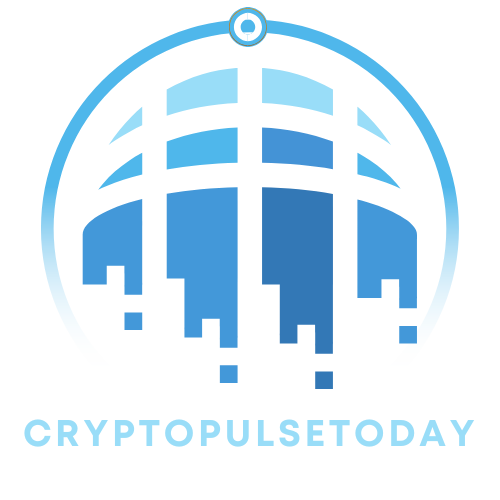Table of Contents
ToggleIn today’s tech-driven world, computer skills aren’t just a nice-to-have; they’re a must-have. Whether you’re wrestling with hardware or dancing through software, mastering these skills can turn you from a digital novice into a tech-savvy wizard. Imagine impressing your friends with your ability to troubleshoot their computer woes or effortlessly navigating the latest software like it’s second nature.
Importance Of Computer Skills
Computer skills are fundamental in a technology-centered world. Proficiency in these skills influences career opportunities significantly. Many employers prioritize candidates who demonstrate strong abilities in both hardware and software applications. Those equipped with computer skills can perform tasks more efficiently, enhancing productivity in various roles.
Understanding hardware components, such as processors and memory, allows users to troubleshoot issues effectively. Software knowledge, including operating systems and applications, enables individuals to complete tasks with precision. Enhanced computer skills enhance adaptability to new technologies, helping users stay relevant in a fast-evolving job market.
Data from the U.S. Bureau of Labor Statistics reveals that over 80% of jobs require basic computer competencies. Individuals without these skills often face challenges in workforce participation. Learning computer skills also fosters problem-solving abilities, as users frequently encounter and resolve technical issues.
Furthermore, effective communication increasingly relies on technology. Familiarity with digital tools supports collaborative efforts, especially in remote work environments. Engaging with databases, spreadsheets, or presentation software enhances data management and visualization capabilities. Career advancement often hinges on the willingness to embrace ongoing learning in computer skills.
The correlation between computer skills and professional growth is evident. Individuals who invest time in developing these skills frequently achieve better career outcomes. Prioritizing computer literacy is not merely beneficial; it’s essential for success in today’s economy.
Types Of Computer Skills

Understanding the two main types of computer skills—hardware and software—enables individuals to enhance their proficiency. Mastery of both areas promotes effective technology use.
Hardware Skills
Familiarity with hardware components like processors, motherboards, and storage devices plays a critical role in troubleshooting. Users equipped with hardware skills can identify issues and perform upgrades or repairs efficiently. Knowledge of peripheral devices, such as printers and scanners, also falls under this category. Knowing how to connect and configure these devices enhances overall computer functionality. Moreover, a solid grasp of networking equipment allows individuals to set up secure and efficient internet connections. Proficiency in hardware skills serves as a foundational element in the tech-centric job market, with over 80% of jobs requiring basic hardware competencies.
Software Skills
Software skills encompass various applications, including word processing, spreadsheets, and database management. Individuals proficient in word processing software can create professional documents with ease. Spreadsheets enable effective data analysis and visualization, vital in many workplaces. Familiarity with database management systems helps organize and retrieve data efficiently. Knowledge of operating systems is essential, as it allows individuals to navigate tools and applications seamlessly. Moreover, understanding programming languages enhances problem-solving abilities. Strong software skills directly influence career advancement, making them indispensable in modern employment landscapes.
Developing Computer Skills
Developing computer skills entails leveraging various resources and educational avenues. Individuals can significantly enhance their abilities through both online platforms and traditional classroom settings.
Online Resources
Online resources provide accessible and flexible learning options. Websites like Coursera and edX offer courses focusing on both hardware and software skills. Videos on platforms such as YouTube can demonstrate practical tasks effectively. Many forums and blogs also present troubleshooting tips and user experiences. Engaging with online communities allows users to seek help and share knowledge. Reports indicate that over 80% of jobs require basic computer competencies, emphasizing the value of these resources for skill development.
Classroom Learning
Classroom learning remains a structured approach to developing computer skills. In-person courses often provide hands-on experiences that reinforce theory. Instructors can offer immediate feedback and personalized guidance. Learning in a classroom also fosters collaboration with peers, enabling shared insights and problem-solving techniques. Many vocational schools and community colleges emphasize programs that cover essential hardware and software topics. Graduates equipped with these skills appear more attractive to employers who prioritize candidates with strong technical abilities.
Assessing Computer Skills
Assessing computer skills involves evaluating both hardware and software competencies. A thorough understanding starts with hardware components like processors, motherboards, and peripheral devices. These elements play a crucial role in troubleshooting effectively. Knowing how to fix basic hardware issues can boost user confidence and efficiency.
Evaluations also extend to software applications, which are integral for tasks such as document creation and data analysis. Familiarity with commonly used software like word processing programs and spreadsheets is essential. Regular practice in using these applications enhances productivity and adaptability in various job situations.
Employers often seek candidates with demonstrated computer skills. Data from the U.S. Bureau of Labor Statistics shows that over 80% of jobs require basic computer competencies. This statistic emphasizes the importance of being proficient in both hardware and software.
Self-assessments can help individuals gauge their current skill levels. Utilizing online quizzes and interactive platforms provides a quick insight into strengths and weaknesses. Additionally, feedback from peers or mentors can offer valuable perspectives on areas for improvement.
Structured training programs also play a significant role in skill enhancement. Vocational schools and community colleges offer courses that cater to both beginners and advanced users. Graduates benefit from hands-on experiences and immediate feedback, making them more attractive to employers.
Regularly updating skills through ongoing education remains essential. The fast pace of technological advancements means that staying current with new tools and applications is crucial. Emphasizing continuous learning helps individuals adapt and thrive in the tech-driven job market.
Computer skills are no longer just an asset; they’re a necessity in today’s job market. Proficiency in both hardware and software not only enhances individual capabilities but also opens doors to a wider range of career opportunities. With over 80% of jobs requiring basic computer competencies, individuals who invest in developing these skills position themselves for success.
Engaging with various learning platforms and communities can make the journey of acquiring computer skills both accessible and enjoyable. As technology continues to evolve, staying updated through ongoing education ensures that individuals remain competitive and adaptable. Embracing computer skills is a step toward personal and professional growth in an increasingly digital world.




